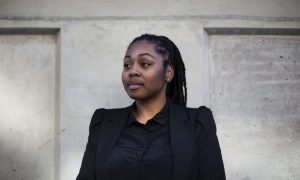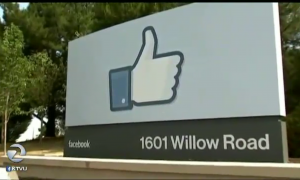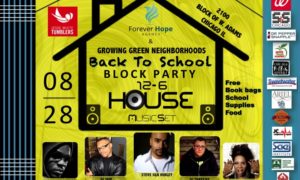As time continues to progress, we have to have an understanding that there will always be a group of people that are less fortunate than someone else. Homelessness is a huge problem for every city whether large or small. Life happens and often times when it does, it’s highly detrimental and extremely overwhelming. EarHustle411 has compassion for everything and everyone ans when we see homeless people, we always give praises to God because we are very blessed to not be in that situation. Some of these cities that try to ban homeless people from sleeping wherever they can, really need to do 1 or 2 things: 1. Do something about those who are homeless, have programs that will put them back into residential living without shoving the “this is a handout” down their throats. or 2. Have several seats!!! We came across an article that discusses why it’s unconstitutional to ban homeless people from sleeping outside. Even though having homeless people sleeping outside may be an eyesore, it should be disturbing because the business of maintaining the community is a lost art, and unfortunately those who are in positions to really help…don’t and those who do are overwhelmed doing so.
Read more as reported by the Washington Post:
We all need sleep, which is a fact of life but also a legally important point. Last week, the Department of Justice argued as much in a statement of interest it filed in a relatively obscure case in Boise, Idaho, that could impact how cities regulate and punish homelessness.
Boise, like many cities — the number of which has swelled since the recession — has an ordinance banning sleeping or camping in public places. But such laws, the DOJ says, effectively criminalize homelessness itself in situations where people simply have nowhere else to sleep. From the DOJ’s filing:
When adequate shelter space exists, individuals have a choice about whether or not to sleep in public. However, when adequate shelter space does not exist, there is no meaningful distinction between the status of being homeless and the conduct of sleeping in public. Sleeping is a life-sustaining activity — i.e., it must occur at some time in some place. If a person literally has nowhere else to go, then enforcement of the anti-camping ordinance against that person criminalizes her for being homeless.
Such laws, the DOJ argues, violate the Eighth Amendment protections against cruel and unusual punishment, making them unconstitutional. By weighing in on this case, the DOJ’s first foray in two decades into this still-unsettled area of law, the federal government is warning cities far beyond Boise and backing up federal goals to treat homelessness more humanely.
“It’s huge,” says Eric Tars, a senior attorney for the National Law Center on Homelessness & Poverty, which originally filed the lawsuit against Boise, alongside Idaho Legal Aid Services.
[Lifting bans on sleeping outside won’t stop criminalization of homelessness]
According to a NLCHP report last year that surveyed 187 cities between 2011 and 2014, 34 percent had citywide laws banning camping in public. Another 43 percent prohibited sleeping in vehicles, and 53 percent banned sitting or lying down in certain public places. All of these laws criminalize the kind of activities — sitting, resting, sleeping — that are arguably fundamental to human existence.
And they’ve criminalized that behavior in an environment where most cities have far more homeless than shelter beds. In 2014, the federal government estimates, there were about 153,000 unsheltered homeless on the street in the U.S. on any given night.
Laws like these have grown more common as that math has actually grown worse since the recession.
“Homelessness is just becoming more visible in communities, and when homelessness becomes more visible, there’s more pressure on community leaders to do something about it,” Tars says. “And rather than actually examining what’s the best thing to do about homelessness, the knee-jerk response — as with so many other things in society — is ‘we’ll address this social issue with the criminal justice system.'”
Source: Washington Post

















































































































































































































































![[Video] Chicago Police Officers Caught On Video Telling Two Black Men "We Kill Mother F**kers"](https://earhustle411.com/wp-content/uploads/2018/07/evil-cop-3-300x180.jpg)
![[Video] Chicago Police Officers Caught On Video Telling Two Black Men "We Kill Mother F**kers"](https://earhustle411.com/wp-content/uploads/2018/07/evil-cop-3-80x80.jpg)












![[Video] White Woman Calls The Cops On Black Real Estate Investor, Cops Threaten To Arrest Her For Harassing Him](https://earhustle411.com/wp-content/uploads/2018/05/nosy-neighbor-300x180.png)
![[Video] White Woman Calls The Cops On Black Real Estate Investor, Cops Threaten To Arrest Her For Harassing Him](https://earhustle411.com/wp-content/uploads/2018/05/nosy-neighbor-80x80.png)


![White Scientist Says The Black Community Is Being Targeted By The Medical System, They Are Deliberatly Being Poisoned [Video]](https://earhustle411.com/wp-content/uploads/2016/05/mike-adams-300x180.jpg)
![White Scientist Says The Black Community Is Being Targeted By The Medical System, They Are Deliberatly Being Poisoned [Video]](https://earhustle411.com/wp-content/uploads/2016/05/mike-adams-80x80.jpg)








![Teenage Girl Shot In Her Stomach Three Times But Took Time To Post To Facebook [ Video]](https://earhustle411.com/wp-content/uploads/2016/02/Gangster-chick-300x180.jpg)
![Teenage Girl Shot In Her Stomach Three Times But Took Time To Post To Facebook [ Video]](https://earhustle411.com/wp-content/uploads/2016/02/Gangster-chick-80x80.jpg)







